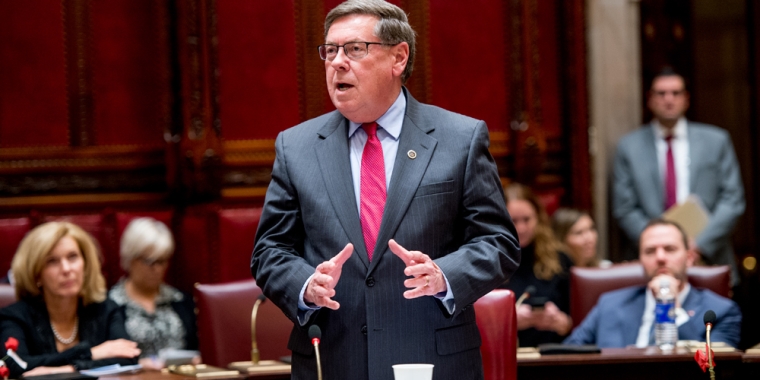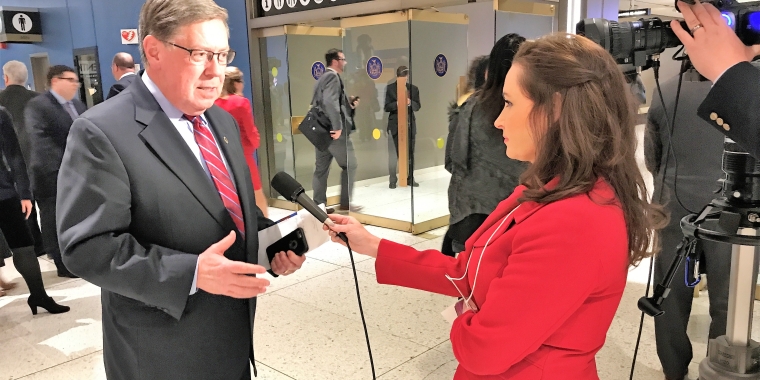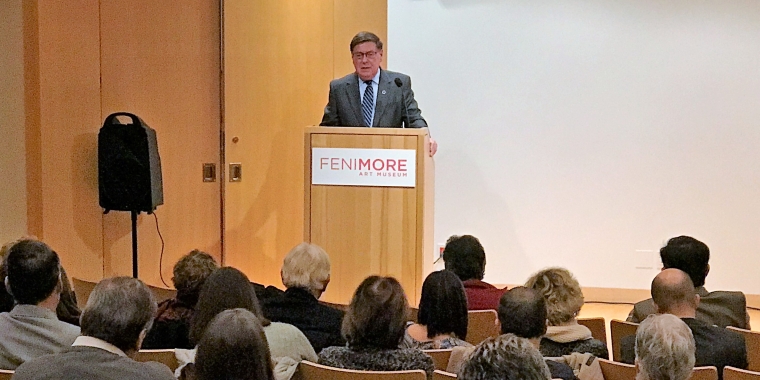
It's Not Too Late To Fix Health Insurance
James L. Seward
February 19, 2009
When Governor Paterson’s deficit reduction package hit my desk one of the first things that jumped out at me was an increase in health insurance taxes. I fought the ill conceived legislation, but senate Democrats were unwilling to budge, and passed the plan anyway. Now I am calling on the governor to use funds from the federal stimulus package to rescind his hike in health insurance taxes and right a very serious wrong.
When Governor Paterson, Senator Malcolm Smith and senate Democrats pushed through a disastrous plan to increase the “covered lives” assessment on health insurance premiums by $240 million, I cried foul. This tax hike will raise taxes on premiums by more than a third for businesses, families and individuals. The increase will force more businesses to stop offering health insurance for employees altogether, driving up the number of uninsured New Yorkers and costing the state money in the long run.
The tax also puts an unfair burden on many insurance companies that employ thousands of New Yorkers. These jobs are an important part of our economy. For some reason the governor just doesn’t understand that piling more taxes and fees on business is wrong, and is one of the reasons so many have fled to other states already.
Now the governor is talking about restoring some of his proposed cuts to health care and using federal stimulus funds to increase state support for preventative care. Finally, that’s a concept I can get behind. The best way to do that would be to use the funds to rescind the covered lives increase to ensure that businesses can continue to provide health insurance for their employees and their families. More uninsured New Yorkers means less preventative care, more emergency room visits, and higher health care costs for hospitals and for state and local governments.
These are all items I pointed out on the floor of the state senate during debate on the deficit reduction package. These are also points I would have made much earlier, except senate Republicans were shut out of the negotiating process. The New York City dominated senate Democrats advocated for the governor’s deficit reduction plan and supported it unanimously. Had Senate Republicans been included in the process, we would have pushed for measures to make health insurance more affordable to businesses, not less.
Last fall I joined my Republican colleagues in the senate and put forward an economic development plan that would make health insurance more affordable to businesses, make businesses more competitive and help them create jobs.
The Republican plan included the following measures to reduce the cost of health insurance for businesses:
* Expand Healthy NY from 208 percent of the federal poverty level (FPL) to 250 percent of the FPL. This would make a family of four with an annual net income of approximately $60,000 per year eligible for the program;
* Make Healthy NY available to all, but at an unsubsidized rate. Doing so would reduce health insurance costs for small businesses at no cost to the state because qualified businesses would be able to purchase streamlined health insurance policies, which could reduce premiums by up to 50 percent;
* Exempt high deductible health plans from state mandates, which would have the same effect as allowing insurers to offer Healthy NY at an unsubsidized rate;
* Require the Department of Labor and the Department of State to study the costs and benefits of allowing businesses to create innovative and flexible heath coverage plans as authorized under federal statute.
In order to ensure the federal stimulus package works we must invest in infrastructure, schools, and other New York assets. We also need to ensure job growth. One way to do that is to ditch one of the most onerous parts of the deficit reduction plan. The governor should roll back the covered lives assessment immediately and stop the drastic increase in health insurance costs.
#####
Share this Article or Press Release
Newsroom
Go to Newsroom
Governor's State of the State Lacks Boost for Upstate Economy
January 3, 2018

Diverse Local Economic Development Projects Receive State Funding
December 13, 2017

